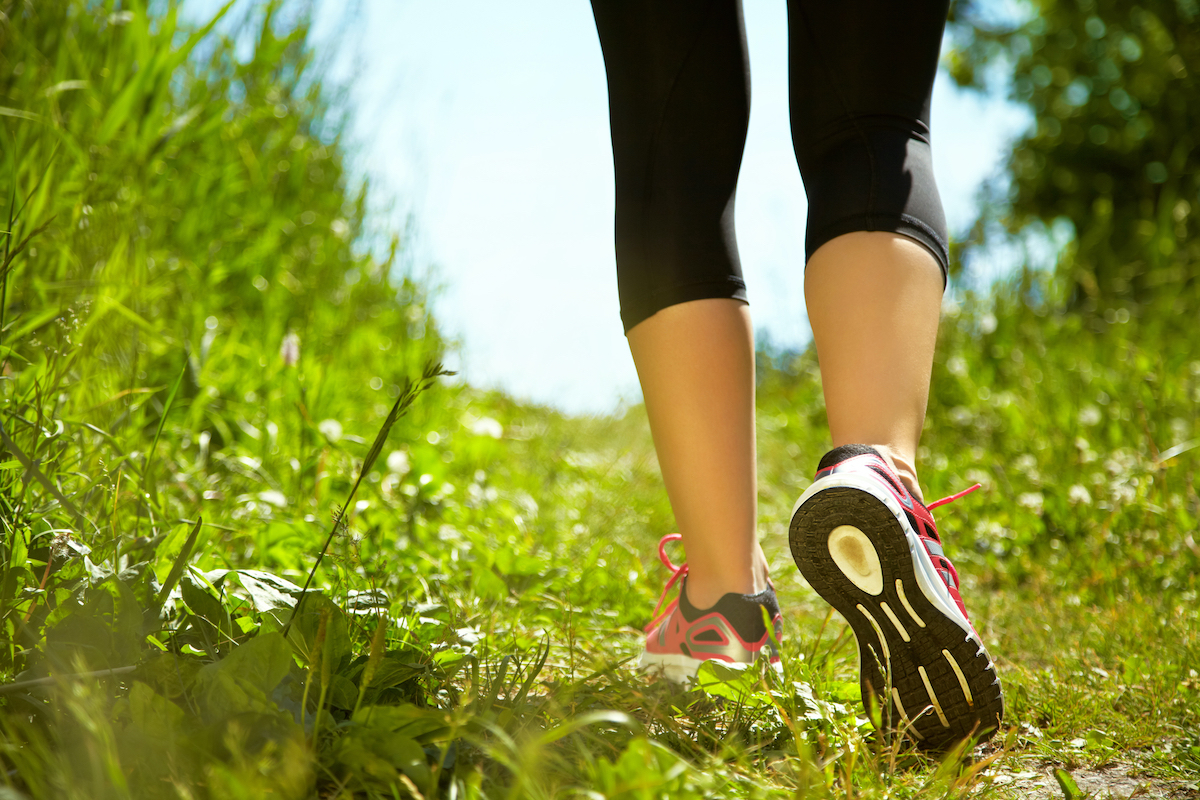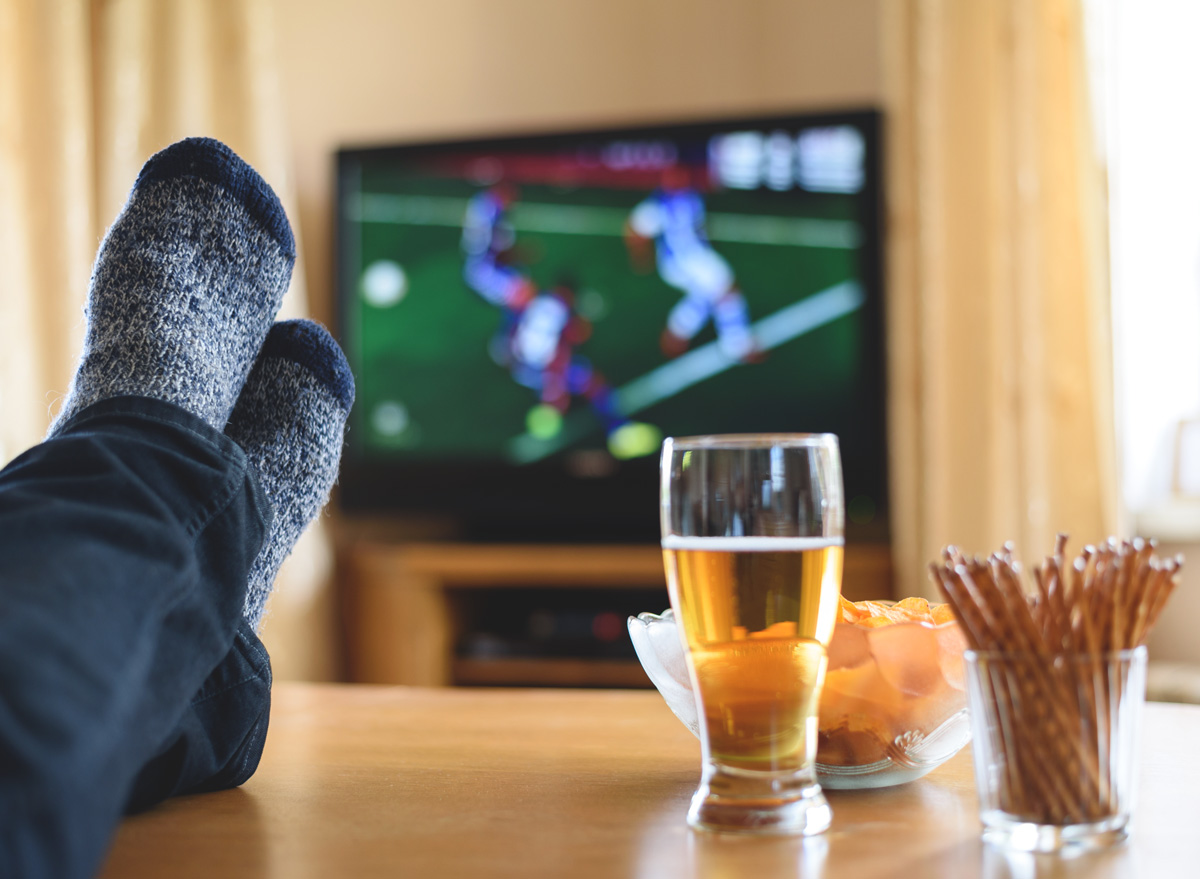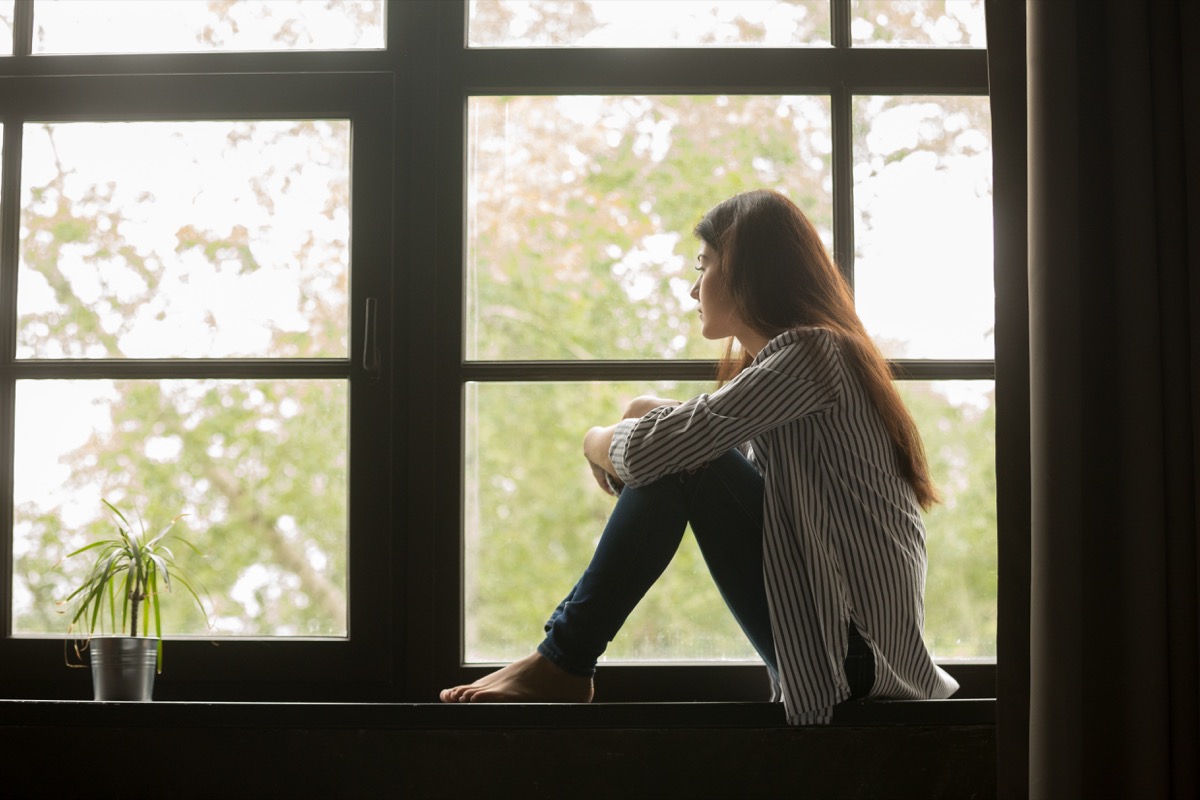Surprising Habits That Are Rapidly Aging Your Body, Says Science

We all know there are ways of living that promote a longer lifespan and younger body well into adulthood and old age. Clean eating, exercising, and keeping the right mindset are a few that immediately come to mind. But a lot goes into the human body's aging process besides just food and physical activity. It wouldn't be a stretch to say that pretty much everything we do—and each decision we make on a daily basis—influences longevity to varying degrees.
Luckily, modern science continues to discover new and surprising habits that affect the aging process. If you're game to know the little and surprising things you're doing every day that may end your life sooner than you'd like, read on, because we've included them all right here. And for more ways to live a longer, healthier life, make sure you're aware of The 7-Minute Walking Trick That Can Add Years to Your Life, Says Study.
You walk slowly

The benefits of walking are indisputable, but did you know keeping up a brisk pace may actually extend your life? Recent research by the University of Sydney found that the faster a person walks on average, the lower their risk of both all-cause mortality and death linked to heart disease.
"A fast pace is generally five to seven kilometres (3-4 miles) per hour, but it really depends on a walker's fitness levels; an alternative indicator is to walk at a pace that makes you slightly out of breath or sweaty when sustained," says lead study author Professor Emmanuel Stamatakis from the University of Sydney's Charles Perkins Centre and School of Public Health.
So, always go at your own speed, but the next time you're out for a stroll—or you're out running errands—try picking up the pace by just a step or two. For more on this, learn the One Way Going for More Brisk Walks Changes Your Body, Says New Study.
You're too focused on success

A fascinating study published in eLife found a connection between power, social status, and aging.
The research involved baboons, which are our closest related cousins from a DNA perspective. Researchers found that male baboons who had attained and maintained high social status showed signs of aging much faster than their peers. While the human world is different than the wild, there are some lessons hidden in those findings for us humans as well. Don't be content with mediocrity, but cut yourself some slack as well. Striving for constant success in all life areas will lead to gray hairs sooner rather than later.
"Environmental stressors can make the clock tick faster, so that some individuals appear biologically older than their actual age and experience a higher risk of age-related disease," explains co-first author Jordan Anderson, a Ph.D. student in Evolutionary Anthropology at Duke University.
You watch just one hour of TV

No one needs a study or scientist to know that spending from noon to midnight in front of the television isn't the healthiest way to spend a day. Still, you'll be shocked to read just how much a single hour of television may influence your lifespan. Research published in the British Journal of Sports Medicine reports that for every single hour of TV an adult over the age of 25 watches, their lifespan may shrink by up to 22 minutes!
You bite your nails

When we bite our fingernails, we're potentially introducing an entire world of bacteria into skin areas where they don't belong. "Here they can proliferate causing a tender, swollen paronychia (infection around the nail fold), a felon (strep infection of the finger pad—super painful), or even deeper infections involving the deeper finger structures," Adam Friedman, MD, an associate professor of dermatology at George Washington School of Medicine and Hospital, told The Healthy. In some cases, nail-biting can even lead to sepsis, a life-threatening condition if left untreated.
You're neglecting your social life

If the past year has taught us anything, it's that staying social is important to for mental health. Even before the pandemic, though, a study published PLOS Medicine observed a group of older adults over a seven-and-a-half year period. Those who maintained "strong social relationships" were 50% more likely to still be alive by the end of the observation period. Study authors even went so far as to state that keeping in touch with friends and family can do more for lifespan and longevity than "other well-known interventions like reducing obesity." And for more ways to improve your mental health, see The One Movie That Can Change Your Life, Says New Study.
You're over-exercising

The right amount of exercise can help keep you young, but just like anything else, overdoing it will backfire on you. Intense workouts push our bodies to their limits, which is good, because then we rest, regenerate, and come back even stronger. If you're not allowing your body to recover properly from your workouts, you're effectively shooting yourself in the foot and doing more harm than anything else.
This is supported by numerous research projects. One study found over-exercising can cause "exercise-induced gastrointestinal syndrome," while another concluded over-exercising can lead to, among other issues, immune system alterations, reproductive dysfunctions, chronic negative energy balance, and osteoporosis. And for some great exercise advice, don't miss The 7 Most Underrated Exercises You've Never Tried, Say Experts.








